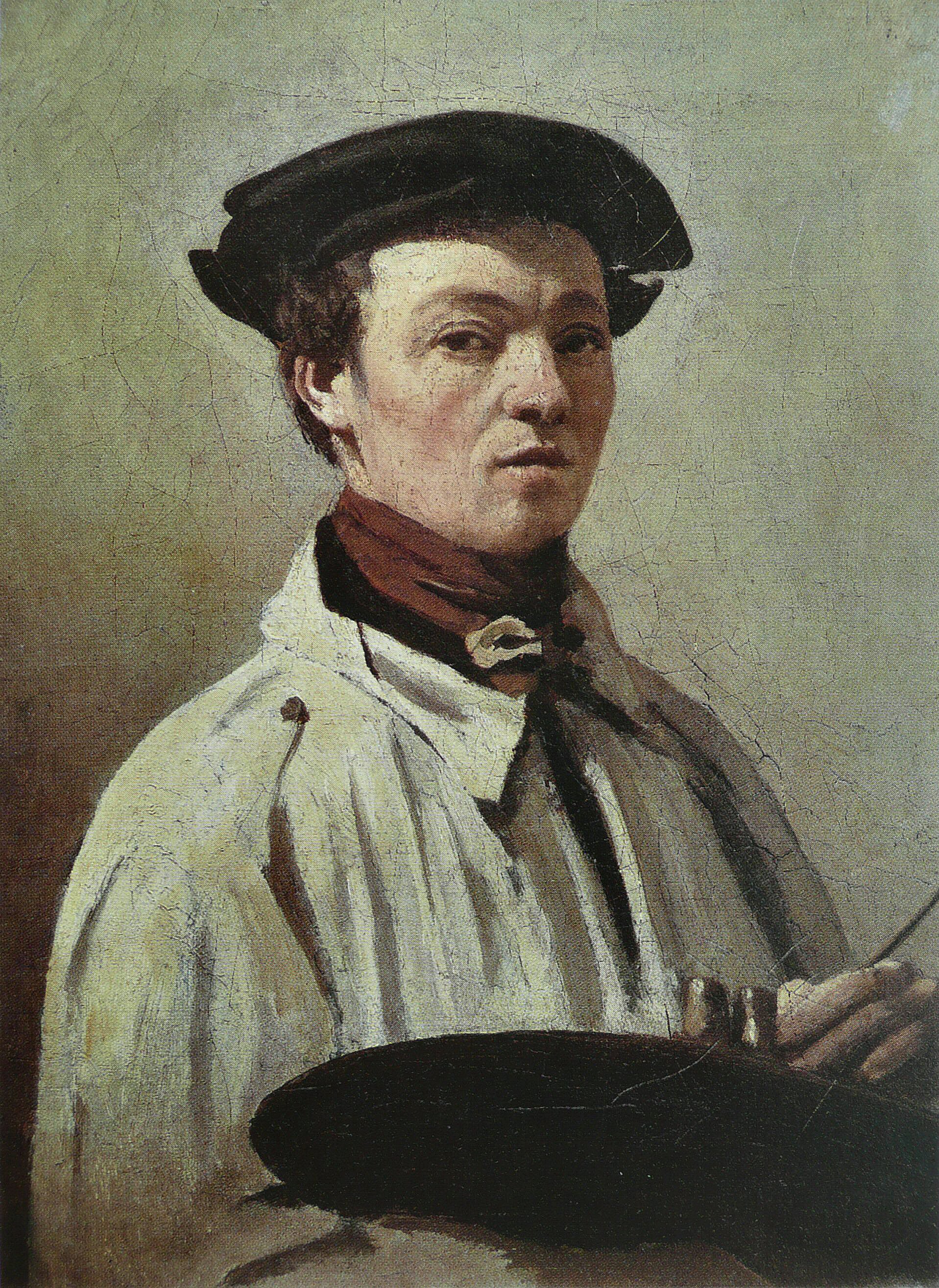
„Na velké linie a klasiky nedbám. Já jsem doma v lesích.“
Zdroj: [Pijoan, José, Dějiny umění 11, Knižní klub, 2000, 80-242-0449-25, 113, česky]
Jean-Baptiste Camille Corot byl francouzský malíř, krajinář.

„Na velké linie a klasiky nedbám. Já jsem doma v lesích.“
Zdroj: [Pijoan, José, Dějiny umění 11, Knižní klub, 2000, 80-242-0449-25, 113, česky]
Corot's description of the beginning of a day in Switzerland, Château de Gruyères, 1857; as quoted in Letters of the great artists – from Blake to Pollock, Richard Friedenthal, Thames and Hudson, London, 1963
1850s
Quote from Corot's 'Notebooks', ca. 1856, as quoted in Artists on Art – from the 14th – 20th centuries, ed. by Robert Goldwater and Marco Treves; Pantheon Books, 1972, London, p. 241
1850s
Quote in Corot's letter to Jean-Gabriel Scheffer, 27 Dec. 1845; as quoted in Corot, Gary Tinterow, Michael Pantazzi, Vincent Pomarède - Galeries nationales du Grand Palais (France), National Gallery of Canada, Metropolitan Museum of Art (New York, N.Y.), 1996, p. 142
this is one of the very few negative expressions by Corot; he is then 49.
1820 - 1850
Quote in a letter to his friend, the painter Paul Tavernier, Geneva, July 1842; ; as quoted in 'Corot', Gary Tinterow, Michael Pantazzi, Vincent Pomarède - Galeries nationales du Grand Palais (France), National Gallery of Canada, Metropolitan Museum of Art (New York, N.Y.), 1996, p. 136
1820 - 1850
Quote, recorded by Madame Aviat; as cited in Corot, Gary Tinterow, Michael Pantazzi, Vincent Pomarède - Galeries nationales du Grand Palais (France), National Gallery of Canada, Metropolitan Museum of Art (New York, N.Y.), 1996, p. 272-73 – quote 69
1860s
“I thank heaven that I was born in the same century as this remarkable artist”
= Daubigny
a remark c. 1865; as quoted in Corot, Gary Tinterow, Michael Pantazzi, Vincent Pomarède - Galeries nationales du Grand Palais (France), National Gallery of Canada, Metropolitan Museum of Art (New York, N.Y.), 1996, p. 272 – quote 65
1860s
Quote from Corot's 'Notebooks', ca. 1856, as quoted in Artists on Art – from the 14th – 20th centuries, ed. by Robert Goldwater and Marco Treves; Pantheon Books, 1972, London, p. 241
1850s
“He [ Delacroix ] is an eagle, I am only a lark.”
as quoted in Corot, Gary Tinterow, Michael Pantazzi, Vincent Pomarède - Galeries nationales du Grand Palais (France), National Gallery of Canada, Metropolitan Museum of Art (New York, N.Y.), 1996, p. 272 – quote 65
1860s
Corot's description of a morning in Switzerland, Château de Gruyères, 1857, as quoted in Letters of the great artists – from Blake to Pollock, Richard Friedenthal, Thames and Hudson, London, 1963
1850s
Quote from Corot's 'Notebooks', ca. 1850, as quoted in Artists on Art – from the 14th – 20th centuries, ed. by Robert Goldwater and Marco Treves; Pantheon Books, 1972, London, pp. 240-241
1850s
Corot told Dumensnil in 1875; as quoted in Corot, Gary Tinterow, Michael Pantazzi, Vincent Pomarède - Galeries nationales du Grand Palais (France), National Gallery of Canada, Metropolitan Museum of Art (New York, N.Y.), 1996, p. 290 – note 18
1870s
Quote from Corot's 'Notebooks', ca. 1828, as quoted in Artists on Art – from the 14th – 20th centuries, ed. by Robert Goldwater and Marco Treves; Pantheon Books, 1972, London, pp. 239 – 240
1820 - 1850
Corot explains his making of the painting to his biographer Alfred Robaut, c. 1869; as quoted in Corot, Gary Tinterow, Michael Pantazzi, Vincent Pomarède - Galeries nationales du Grand Palais (France), National Gallery of Canada, Metropolitan Museum of Art (New York, N.Y.), 1996, p. 277
about his painting 'Landscape with Figures', also called 'La Toilette', Corot painted in 1859
1860s
as quoted by Arthur Hoebert, in The Barbizon Painters – being the story of the Men of thirty – associate of the National Academy of Design; publishers, Frederick A. Stokes Company, New York 1915, p. 61
undated
Quote from Corot's letter to his friend M. Francais in 1875, the year of his death
1870s
Quote from Corot's 'Notebooks', ca. 1828, as quoted in Artists on Art – from the 14th – 20th centuries, ed. by Robert Goldwater and Marco Treves; Pantheon Books, 1972, London, p. 240
1820 - 1850
“I dream my picture and afterwards I paint my dream.”
As translated in Musical Courier Vol. 57, No. 21 (18 November 1908), p. 20; in recent years a nearly identical but ultimately unsourced remark has been attributed to Vincent Van Gogh; the very earliest such attributions yet found date to the 1990s.
As translated in Bible Mystery and Bible Meaning (1918) by Thomas Troward, p. 207
As translated in Gardener's Chronicle of America (1932)
undated
Originál: (fr) Je rêve mon tableau, et plus tard je peindrai mon rêve.